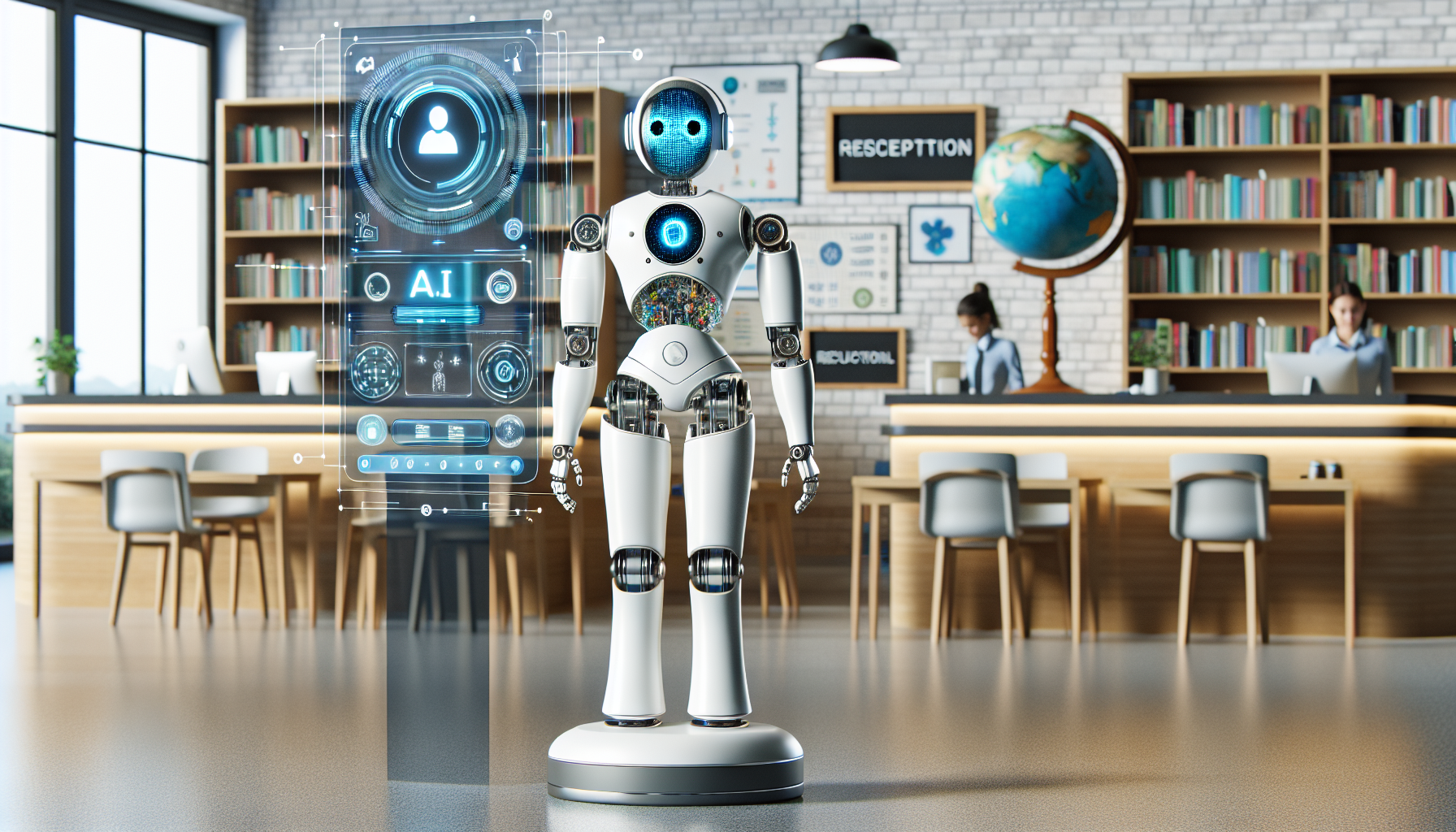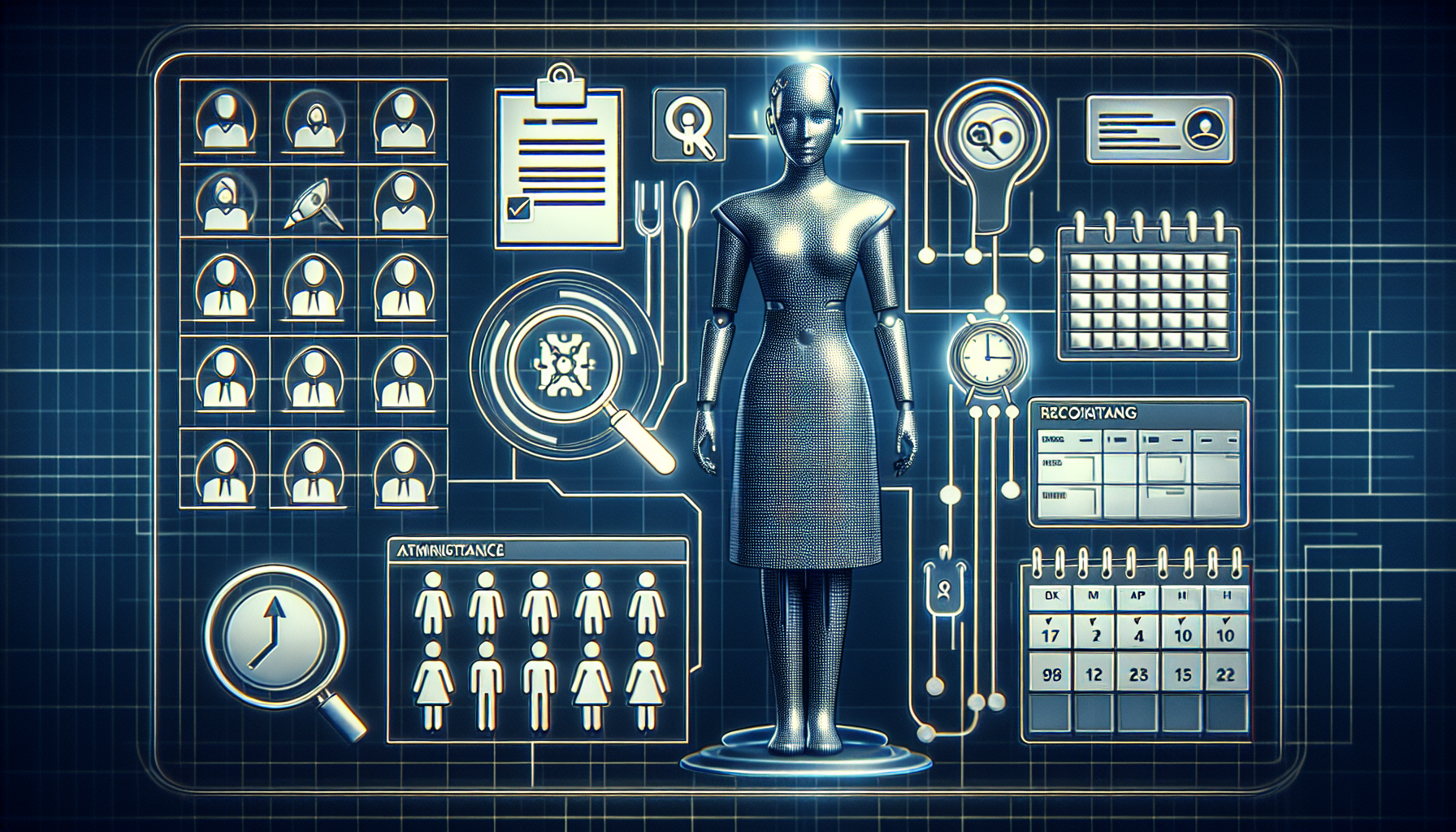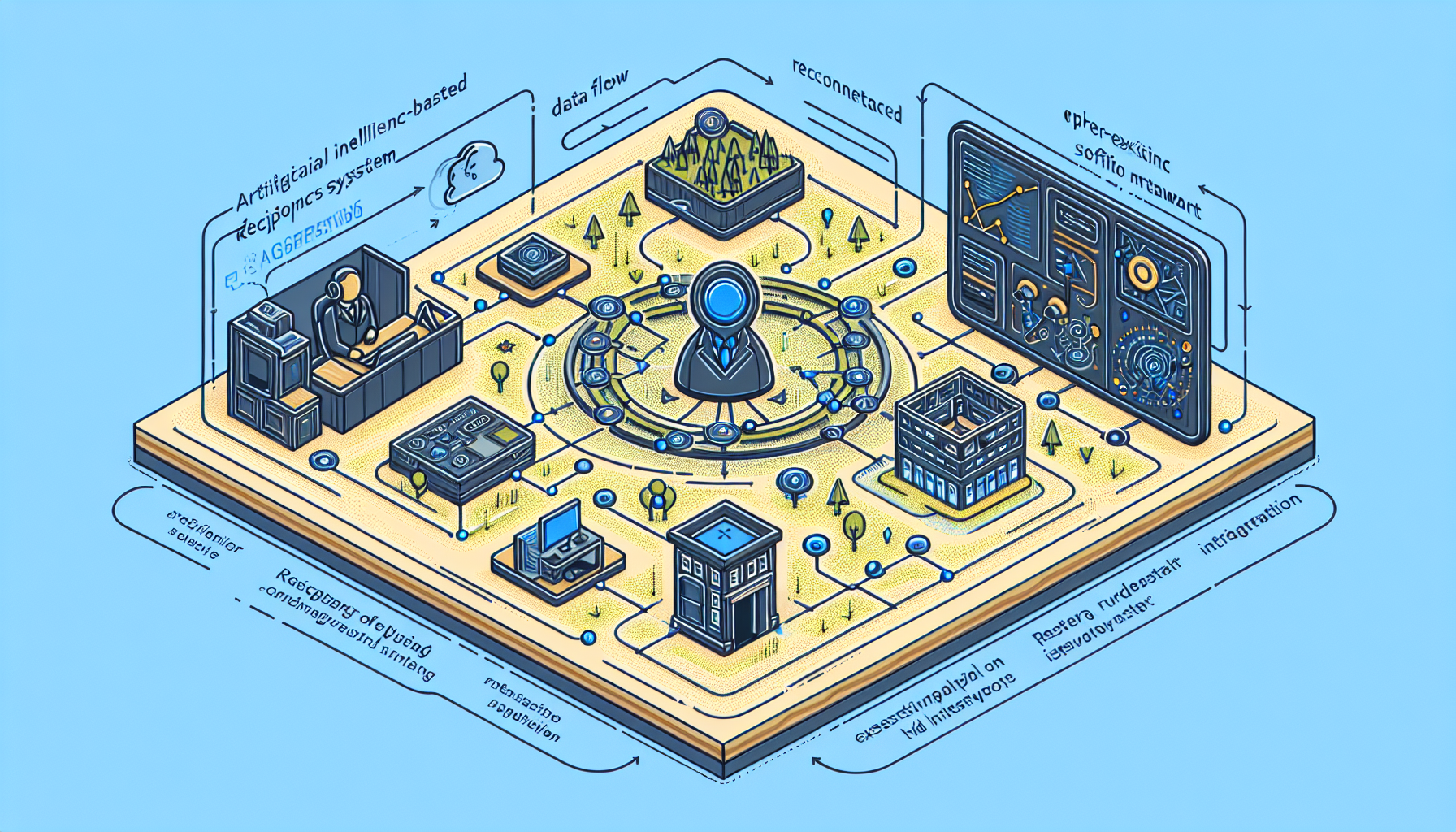
The education sector has always been a main driver in the adoption and development of new technologies. One such technology that's rapidly gaining attention is Artificial Intelligence (AI). AI is not just revolutionizing teaching and learning processes, but also proving instrumental in streamlining cumbersome administrative tasks. In this context, one AI tool that’s poised to help educational institutions significantly is the AI Receptionist.

Also known as AI Assistant, an AI Receptionist can handle a multitude of administrative tasks previously performed manually. This role is not limited to just answering incoming calls; AI Receptionists can manage appointments, direct calls to respective departments, and even answer basic inquiries of students, parents, or staff. In essence, AI receptionists can automate, accelerate, and streamline routine administrative tasks, freeing staff to focus on more strategic and critical tasks.
AI Receptionists utilize Natural Language Processing (NLP), Machine Learning, and algorithms that learn from every interaction to enhance their abilities. They can be programmed to learn the institution’s operations, schedules, departments, and other areas relevant to the role. Answering queries regarding schedules, course information, event dates, or any general inquiries becomes a matter of seconds. This efficiency dramatically enhances the student and parent experience by providing prompt and accurate responses.
Implementing an AI Receptionist in an education institution does not need the replacement of human workforce. These systems act as an extension to the administrative staff, handling the overwhelming volume of routine tasks and improving their productivity. Although these AI systems can’t replace human empathy, judgment, and advanced problem-solving skills, they certainly provide a much-needed relief in tackling monotonous tasks.
AI Receptionists are adaptable and their deployment is customizable to an institution's specific needs. It's a bold and exciting step towards the digital transformation of the administrative aspect of education, promising the potential of reduced costs, increased efficiency, and enhanced user experience.
The possibilities are vast, and as AI technology continues to advance, we can look forward to AI Receptionists taking on even more complex tasks in educational administration.
In the bustling world of education, seamless communication is pivotal. The exchange of information between students, parents, and faculty often drives the educational process. Here, the role of AI Receptionists in managing this information flow comes to light. Their potential to streamline administrative tasks, especially in improving communication efficiency, is both ground-breaking and highly resourceful.
Pioneering an innovative approach, AI receptionists leverage state-of-the-art AI-based chatbots and automated caller systems to manage and regulate calls and messages at educational institutions. By ensuring prompt tackling of incoming communication, these intelligent assistive devices help in maintaining the administrative workflow's coherency.
In the daily working of an educational institution, communication is multilateral and constant. AI receptionists, palatably efficient and endlessly diligent, help in efficiently handling incoming and outgoing communication. Their ability to sift crucial messages from the trivial augments the institution's overall operational effectiveness.
Accessibility is another significant advantage of deploying AI Receptionists. These systems hold a massive edge over conventional receptionists due to their 24/7 availability. Ensuring students, staff, or parents can make inquiries or complaints at any hour, the AI receptionist becomes an interactive hub, enhancing transparency and accountability.
The technology behind AI receptionists also holds a tremendous capacity for machine learning . Over time, the system acquires patterns and subtleties from the nature of processed communication, refining itself continually.While conventional receptionist postures might involve latency and errors, an AI Receptionist graduates and evolves based on its past interactions.
Thus, amidst the ever-swirling hurricane of information, AI Receptionists alleviate the burden of administrative tasks in education. Their ability to manage complex communication systems with impeccable precision and unerring consistency makes them an indispensable asset in the realm of education.
The application of AI receptionists in the field of education is revolutionizing how administrative tasks are managed, drastically reducing the workload on human personnel. The primary applications of AI receptionists focus on attendance recording, appointment scheduling, and query resolution.

Attendance recording is one of the most time-consuming tasks in educational institutions. However, with the advent of AI receptionists, it has become streamlined and automated. Using intelligent facial recognition or biometric systems, AI receptionists can swiftly identify and record the presence of students, sending updates to parents and staff if a student is absent without prior notice.
Another essential function of the AI receptionist is appointment scheduling. Faculty members can efficiently manage their calendars, allowing students to easily schedule meetings without the tedious back-and-forth often associated with traditional scheduling methods. The time blocking feature of AI receptionists prevents double-booking and helps maintain a balanced schedule for faculty members.
Apart from this, AI receptionists assist in query resolution by providing pre-programmed responses to frequently asked questions, directing more complex queries to a human agent. This ensures that all student queries are addressed promptly and accurately, enhancing the overall learning experience. The AI technology in receptionists can continuously learn from experiences, resulting in better query resolution over time.
In conclusion, the automation of these important tasks by AI receptionists not only saves valuable time and resources, but also improves the overall efficacy of educational institutions, paving the way for a more efficient and productive educational environment.
The world of education has seen a transformative shift in administrative tasks with the advent of AI Receptionists. Streamlining administrative duties in schools not only reduces cost, but also enhances productivity and improves data management. In this section, we will discuss these benefits that AI receptionists bring to the education industry.
Cost Reduction is the first key benefit. The cost of hiring, training, and maintaining a full-time receptionist can be significant when considering salaries, benefits, and other expenses. An AI receptionist, however, incurs no such costs. This digital solution is capable of accomplishing all the tasks associated with a conventional receptionist at a fraction of the cost.
An enhanced level of Increase productivity is another major benefit of AI receptionists in education. Tasks that typically demand ample time and resources are effectively streamlined by the AI. The system can operate 24/7, managing scheduling, answering calls, responding to emails and handling visitor check-ins, among others. The frees up human associates to attend to tasks that require a personal touch and critical thinking.
Lastly, the use of AI Receptionists leads to Enhanced Data Management. AI receptionists automatically record, manage, and store vast amounts of data, reducing the chance of human error. Moreover, they can rapidly compile and analyze data, providing quicker access to valuable insights. This efficient data management further reduces administrative burden and promotes better decision making in education.
In closing, the proper and strategic use of AI receptionists in educational settings has the potential to drastically reduce costs, increase productivity, and enhance data management. The technology is indeed a game-changer, and its adoption should be considered by all learning institutions that wish to streamline their administrative tasks towards a more effective and efficient future.
AI receptionist systems are highly adaptable and can be seamlessly integrated with existing school management software. The capability of these automated systems to blend into an existing infrastructure further increases their value, thereby assisting institutions to streamline their administrative tasks without any significant overhauls.

The true strength of AI receptionists lies in their scalability. Schools of varying sizes and structures can deploy them with ease. Whether a small private institution or a large public one, an AI receptionist solution can be tailored to meet the institution's specific needs. From handling a few hundred to several thousand student inquiries, these AI-based receptionists are designed to scale to match the requirements, ensuring efficient and smooth operations.
In most cases, the implementation of an AI receptionist involves progressive stages. Initially, the system is operated alongside human receptionists, providing support and offloading routine tasks. As the system learns and adapts, its capabilities expand, leading to greater responsibilities and eventual full autonomy in handling administrative tasks.
The intuitive nature of these systems allows for painless integration and rapid scalability, offering schools a scalable and integrated solution to traditional administrative challenges. By adopting an AI receptionist, schools can focus more on the core objective of imparting quality education, leaving routine administrative tasks to their smart and capable virtual assistant.
```As the digital landscape continues to evolve, the role of AI receptionists in education is set to expand, opening up new opportunities for growth and innovation. AI technology is not just about building efficiency but also about providing more personalized learning experiences and improved security measures.
Artificial Intelligence has the potential to redefine the education sector by enabling personalized learning pathways based on each student's capabilities and learning style. AI receptionists can effectively guide students by providing resources tailored to their unique needs. This feature is particularly valuable in higher education settings where students have specialized areas of study.
Enhanced security is another dimension that AI brings to the education industry. AI receptionists can enforce restrictions on data access, ensuring only authorized individuals can access sensitive information. They can also provide instant alerts for any unusual activity, thereby strengthening security measures.
Moving towards the future of education, advanced AI algorithms can even predict future trends in student performance and behavior. This information can be used to develop proactive strategies that help students succeed. Moreover, the integration of AI with virtual reality and augmented reality can bring about a paradigm shift in the learning environment, making it more interactive and engaging.
In conclusion, the potential of AI receptionists in education is immense, promising a future where technology and education seamlessly intertwine to enhance learning outcomes. The road ahead is filled with opportunities for institutions willing to harness the power of AI for a superior learning experience – an experience that extends way beyond simple administrative tasks.
Start your free trial for My AI Front Desk today, it takes minutes to setup!








